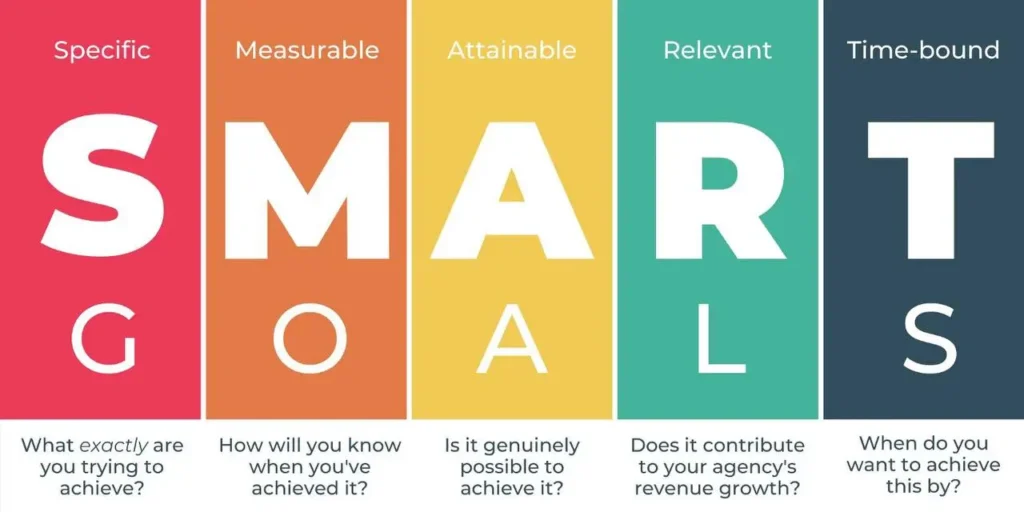You know that feeling when someone asks “So, what do you do?” and you find yourself cringing a little? We’ve all been there. Maybe you’re stuck in a cubicle wondering if there’s more to life than endless meetings and fluorescent lighting. Or perhaps you’re fresh out of college, realizing that the “traditional” career path everyone talks about just… doesn’t spark anything in you.
Here’s the thing – and I really mean this – the world has changed dramatically, and so have our career options. Gone are the days when your only choices were doctor, lawyer, teacher, or accountant. The modern economy has created some absolutely fascinating opportunities that most people don’t even know exist. And honestly? Some of them pay better than those traditional jobs we’ve been told to aspire to.
So let’s dive into some career paths that might make you think, “Wait, people actually get paid to do that?”
The Digital Revolution Has Created Jobs Nobody Saw Coming
AI Trainer and Prompt Engineer
This is probably one of the newest career paths on the planet, and it’s growing like crazy. AI trainers are shaping the future of technology, essentially teaching artificial intelligence systems how to behave and respond. It’s like being a teacher, but your students are algorithms.
I know a guy who started as a regular software developer and now makes six figures training AI models for a major tech company. His job? He spends his days having conversations with AI systems, refining their responses, and making sure they don’t go off the rails. It’s part psychology, part technology, and entirely fascinating.
The best part? You don’t necessarily need a computer science degree. Companies are looking for people who understand human communication, psychology, and have a knack for understanding how people think and interact.
Voice Actor for AI and Technology
Remember when voice acting meant cartoon characters and radio commercials? Well, now voice actors are the voices behind Siri, Alexa, GPS systems, and countless apps and video games. Voice actors can pull in six-figure incomes, and many work entirely from home studios.
My neighbor actually does this – she’s the voice behind several meditation apps and makes more money than most people I know in corporate jobs. She works in pajamas, sets her own schedule, and travels whenever she wants. Not a bad gig, right?
Digital Nomad Content Creator
This one might seem obvious now, but think about it – ten years ago, “content creator” wasn’t even a real job title. Now people are making serious money creating videos, podcasts, blog posts, and social media content. And I’m not just talking about the mega-influencers you see on TikTok.
There are content creators making comfortable livings teaching people how to knit, explaining complex topics in simple terms, or even just sharing their daily routines. The key is finding your niche and being authentic about it.
The Weird and Wonderful World of Specialized Services
Food Stylist
You know those gorgeous food photos you see in magazines or on Instagram that make your mouth water? A food stylist is one of the best high-paying weird jobs, requiring preparing and styling food for advertisements, magazines, and films, making it look appetizing and visually appealing.
It’s like being an artist, but your medium is mashed potatoes and your canvas is a dinner plate. These professionals can make anywhere from $50,000 to well over $100,000 a year, and they get to work on everything from cookbook photography to major advertising campaigns.
The funny thing is, the food often isn’t even edible by the time they’re done with it. They use all sorts of tricks – like mixing corn syrup with food coloring to make “syrup” that photographs better, or using cardboard hidden under toppings to make burgers look taller.
Professional Cuddler
I kid you not, this is a real job. Professional cuddlers provide non-sexual, therapeutic touch for people who need human connection. It might sound weird at first, but when you think about it, it makes perfect sense. We live in an increasingly disconnected world, and many people are genuinely touch-starved.
These professionals typically charge $60-$100 per hour and work through certified platforms. It requires training, boundaries, and emotional intelligence, but for the right person, it can be incredibly fulfilling work.
Pet Food Taster
Yes, someone has to make sure that premium dog food actually tastes good – to dogs, anyway. Pet food tasters evaluate the flavor, texture, and nutritional content of pet foods. They don’t actually swallow it (usually), but they do taste it to ensure quality.
It’s not the most glamorous job, but it can pay surprisingly well, especially if you work for a major pet food manufacturer. Plus, you’d probably become really popular with dog owners at parties with your random pet nutrition facts.
Creative Careers That Actually Pay the Bills
Experience Designer
This is different from traditional graphic design or web design. Experience designers create entire journeys – think escape rooms, immersive art installations, themed restaurants, or even the layout of retail stores. They’re psychologists, artists, and storytellers all rolled into one.
With the rise of experiential marketing and Instagram-worthy attractions, companies are investing heavily in creating memorable experiences. Theme parks, hotels, museums, and even shopping malls are hiring experience designers to make their spaces more engaging and memorable.
Music Therapist
Music therapists are healing through art, using music to help people with various mental health, physical, or developmental challenges. It’s a growing field, especially as we learn more about the therapeutic benefits of music.
Music therapists work in hospitals, schools, nursing homes, rehabilitation centers, and private practice. They might help stroke patients regain speech, work with autistic children to improve communication, or assist veterans dealing with PTSD. It requires a specific degree and certification, but it’s incredibly rewarding work that typically pays well.
Ethical Hacker (Penetration Tester)
Companies actually hire people to try to break into their systems – legally, of course. Ethical hackers, also called penetration testers, are the good guys who find security vulnerabilities before the bad guys do.
It’s like being paid to play the world’s most important video game. You spend your days trying to outsmart security systems, and when you succeed, instead of getting in trouble, you get paid and thanked for it. Many ethical hackers work as freelancers, setting their own rates and choosing their clients.
The Human Touch in an Automated World
Doula and Birth Coach
Doulas provide emotional and physical support to families during pregnancy, birth, and postpartum. It’s not medical care – that’s what doctors and midwives are for – but rather emotional guidance and advocacy.
With more people seeking personalized, holistic birth experiences, doulas are in high demand. Many work independently, setting their own schedules and rates. It’s emotionally intensive work, but many doulas say there’s nothing more rewarding than helping families through one of life’s most significant moments.
Professional Organizer
Marie Kondo made decluttering famous, but professional organizers have been helping people get their lives together for decades. They work with everyone from busy executives to people dealing with hoarding disorders.
It’s part interior design, part therapy, and part life coaching. Many professional organizers specialize in specific areas – closets, offices, estate cleanouts, or digital organization. With people increasingly recognizing the connection between organized spaces and mental health, this field is booming.
Senior Technology Consultant
Here’s a niche that’s exploding: helping older adults navigate technology. As our population ages and technology becomes more essential for everyday life, there’s huge demand for patient, understanding people who can bridge the digital divide.
These consultants teach seniors how to use smartphones, set up video calls with grandkids, navigate online banking, or even start their own online businesses. It’s incredibly fulfilling work that pays well and has flexible scheduling.
The Adventure Seekers’ Dream Jobs
Travel Coordinator for Unique Experiences
Forget traditional travel agents – modern travelers want unique, Instagram-worthy experiences. Travel coordinators now specialize in creating adventure trips, wellness retreats, foodie tours, or even “digital detox” vacations.
Some focus on specific niches like solo female travel, adventure sports, or luxury camping (glamping). Others create entirely custom experiences based on their clients’ interests and budgets. With the right network and creativity, it’s possible to build a six-figure business in this field.
Drone Operator and Aerial Photographer
Drones have created an entirely new industry. Professional drone operators work in real estate (creating stunning property videos), agriculture (monitoring crop health), construction (site surveys), and entertainment (filming weddings and events).
The licensing requirements aren’t too complicated, but the earning potential is significant. Specialized drone operators working in industries like search and rescue or infrastructure inspection can command premium rates.
Wildlife Photographer and Conservation Educator
This combines adventure, artistry, and purpose. Wildlife photographers don’t just take pretty pictures – they’re often conservation advocates, using their images to tell important stories about endangered species and environmental issues.
With the rise of social media and digital platforms, wildlife photographers have more opportunities than ever to monetize their work through stock photography, prints, workshops, and sponsored content.
Remote Work Revolution: Location Independence
Online Fitness Coach
Online fitness coaches have exploded in popularity, especially since the pandemic showed us that effective fitness guidance doesn’t require a physical gym. These coaches work with clients worldwide via video calls, apps, and online programs.
The beauty of this career is its scalability. You can work one-on-one with high-paying clients, create group programs, or develop digital courses that generate passive income. Many online fitness coaches earn more than traditional personal trainers while having complete location freedom.
Digital Detective (Online Research Specialist)
Businesses need people who can dig deep into the internet to find information – about competitors, potential clients, market trends, or even background checks on potential employees. It’s detective work for the digital age.
These specialists might help lawyers build cases, assist journalists with investigations, or help companies understand their market position. It requires curiosity, patience, and excellent research skills, but it can be done entirely remotely.
Virtual Reality Experience Developer
VR isn’t just for gaming anymore. Companies are using virtual reality for training, therapy, education, and marketing. VR developers create these experiences, combining technical skills with creativity and psychology.
Healthcare organizations use VR for pain management and phobia treatment. Real estate companies offer virtual property tours. Museums create immersive historical experiences. The applications are endless, and skilled VR developers are in high demand.
Making the Leap: How to Transition to an Unconventional Career
So maybe one of these career paths has sparked something in you? Here’s the real talk about making the transition.
First off, don’t quit your day job tomorrow. I know that’s not the exciting advice you want to hear, but building a non-traditional career often takes time. Freelance and contract work offer a unique pathway to full-time opportunities, allowing you to showcase your skills and adaptability.
Start small. If you’re interested in becoming a food stylist, start practicing with your own cooking photos. Want to be a voice actor? Begin creating a portfolio with free projects. Thinking about becoming an online fitness coach? Start by helping friends and family members reach their fitness goals.
The internet is your best friend here. YouTube University is real, and there are online courses for virtually every skill imaginable. Many of these unconventional careers value skills and portfolio over formal education anyway.
Network like crazy, but not in the stuffy, business card way. Join online communities, follow people you admire on social media, comment thoughtfully on their content. Tech startups and creative industries often embrace flexibility and risk, making them more open to unconventional backgrounds.
The Reality Check: Challenges of Unconventional Careers
I don’t want to paint an unrealistically rosy picture here. Unconventional careers come with their own set of challenges that you should be prepared for.
Income can be unpredictable, especially when you’re starting out. There’s no pre-defined path and clear promotion timelines in many of these fields. You’re essentially creating your own career roadmap as you go.
You’ll probably get some raised eyebrows at family gatherings. People might not understand what you do for a living, and that’s okay. You might have to explain your job more often than someone with a traditional title.
You’ll need to be incredibly self-motivated. There’s no boss looking over your shoulder or annual performance reviews to keep you on track. You are your own HR department, marketing team, and CEO all rolled into one.
But here’s what I’ve noticed about people who’ve made these transitions successfully: they’re happier. They have more control over their time, their income potential, and their day-to-day experience. They’re not just surviving their careers – they’re actually excited about their work.
The Future is Bright for Career Rebels
The growth of independent work is driven by the need for flexibility and the rise of technology that makes working remotely easier than ever. We’re living in the best time in history to create an unconventional career.
Technology has democratized access to global markets. Social media has made it possible to build audiences and businesses from scratch. The gig economy has normalized flexible work arrangements. And increasingly, both individuals and companies are prioritizing flexibility, creativity, and work-life integration over traditional corporate structures.
The careers I’ve mentioned here are just the tip of the iceberg. New opportunities are being created every day as technology advances and society evolves. Who knows? Maybe the career that’s perfect for you doesn’t even exist yet, but it will by the time you’re ready for it.
The question isn’t whether unconventional career paths are viable – they absolutely are. The question is whether you’re brave enough to explore them. Because honestly, the biggest risk might not be leaving the traditional path behind. It might be staying stuck in a career that doesn’t fulfill you, waiting for “someday” to pursue something that actually excites you.
Your “someday” could be today. What’s stopping you from taking the first step toward a career that doesn’t just pay the bills, but actually makes you excited to get out of bed in the morning? The world needs what you have to offer – you just might need to package it in a way nobody’s thought of yet.









